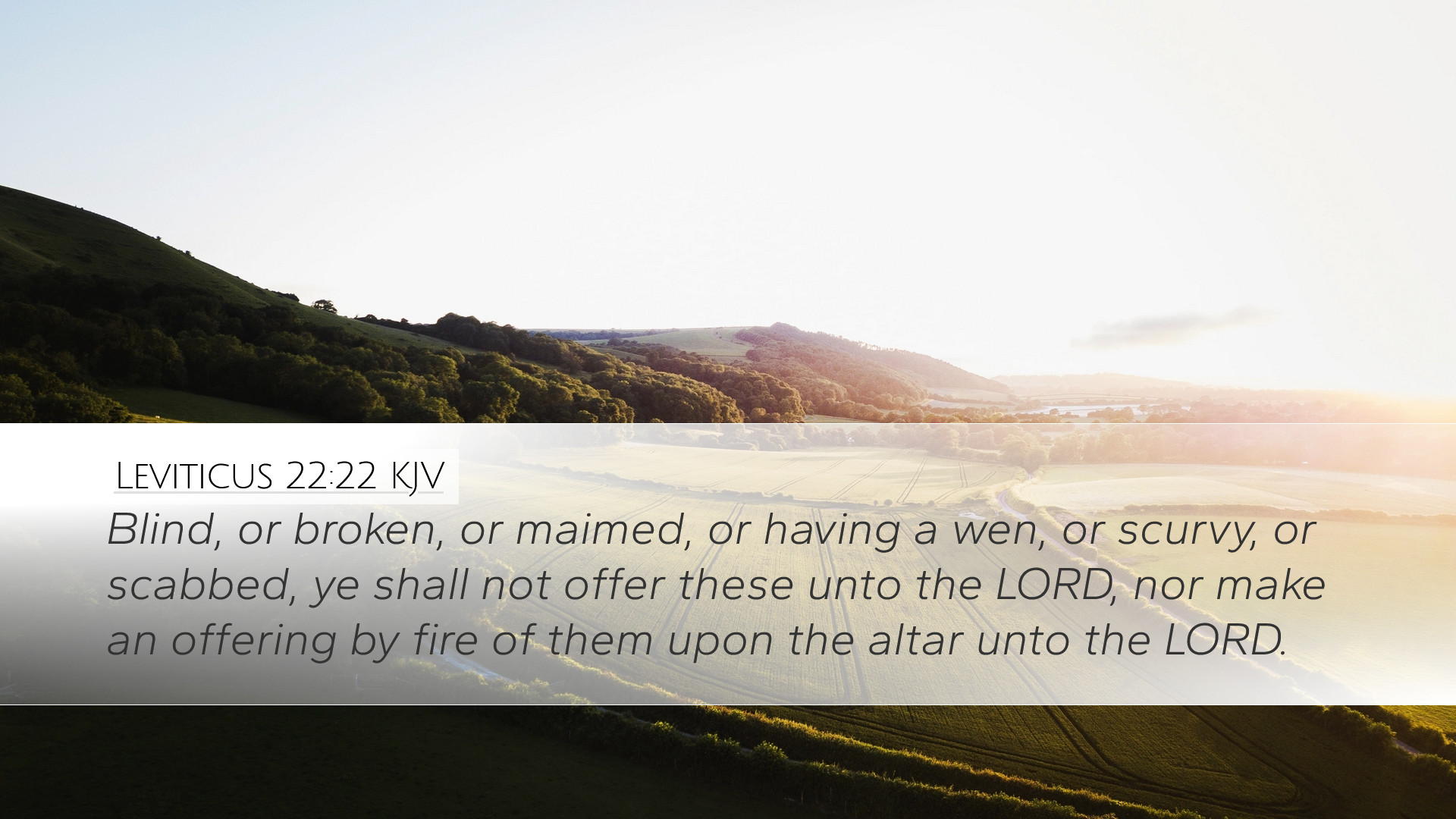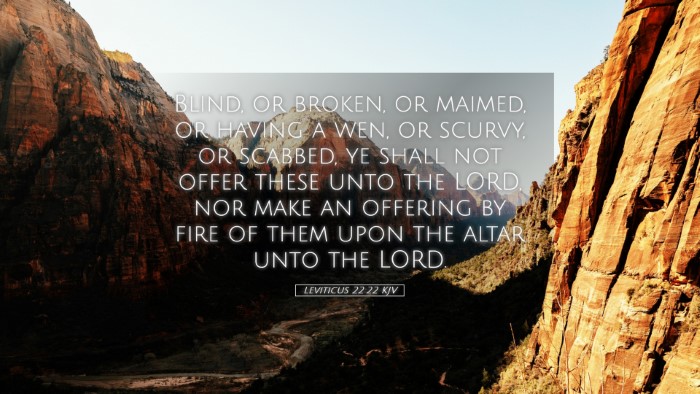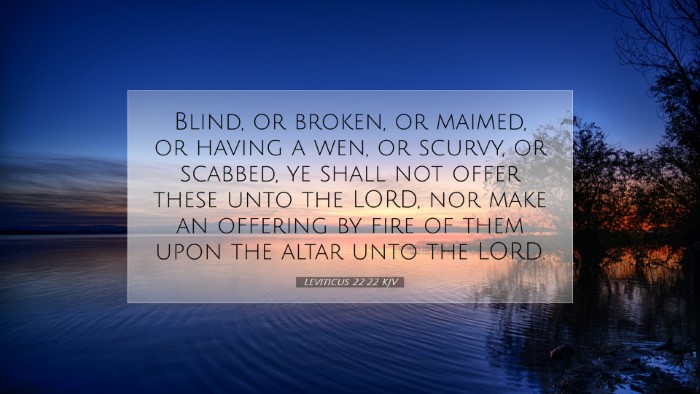Commentary on Leviticus 22:22
Verse: Leviticus 22:22 - "Blind or broken, or maimed, or having a wen, or scurvy, or scabbed, ye shall not offer these unto the LORD, nor make an offering by fire of them upon the altar unto the LORD."
Contextual Overview
The book of Leviticus provides detailed regulations concerning sacrifices, priestly conduct, and holiness. Leviticus 22 specifically addresses the qualifications of sacrifices to be offered to God, emphasizing the importance of presenting offerings that are free from physical defects.
Key Insights from Commentaries
1. Matthew Henry’s Commentary
Matthew Henry underscores that the primary purpose of these prohibitions is to maintain the sanctity of the offerings being made to God. He mentions that the Israelites were instructed to bring the best of their livestock, emphasizing that anything blemished or defective was not suitable for sacrifice.
- Symbolism of Perfection: Henry points out that the requirement for unblemished offerings symbolizes the perfection and holiness of God. It serves as a reflection of His nature and the standard expected of those who approach Him in worship.
- Spiritual Application: He further elaborates that believers today should also present themselves to God in a state of spiritual purity and dedication, ensuring that their lives reflect His holiness.
2. Albert Barnes’ Notes on the Bible
Albert Barnes expounds upon the various conditions of the animals mentioned in this verse. He notes that animals that are “[b]lind, or broken, or maimed” signify spiritual deficiencies that cannot be offered to God.
- Understanding the Terms: Barnes defines the terms in the verse, explaining that "wen" (tumor) and "scurvy" (skin disease) represent the unclean status of the animals, thereby making them unacceptable as offerings.
- Historical Context: He highlights the historical significance of these laws in guiding the Israelites in their worship practices and ensuring a respectful approach to God, who deserves the best.
3. Adam Clarke’s Commentary
Adam Clarke provides a more in-depth explanation of the implications of this verse in the customs and religious practices of the Israelites. He suggests that these restrictions were part of a larger covenantal framework established by God.
- Holiness in Worship: Clarke emphasizes that the call for perfection in offerings is linked to God's holiness and the comprehensive nature of the covenant relationship between God and His people.
- Covenantal Implications: He discusses how the Israelites’ obedience to these laws was a reflection of their fidelity to the covenant, marking them as a distinct people chosen by God.
Theological Reflections
The insistence on unblemished animals for sacrifice transcends mere ritualism; it reveals profound theological truths about God's nature and the human condition. In understanding that God requires the best, believers are called to reflect Christ's ultimate sacrifice, who is the "Lamb without blemish and without spot" (1 Peter 1:19).
Practical Applications
For pastors, students, and scholars, this verse serves as a critical reminder of the importance of integrity in worship and commitment to God’s standards.
- Personal Reflection: Individuals are encouraged to examine their lives, ensuring that they approach God with sincerity, striving for holiness in all areas—mind, body, and spirit.
- Leadership Guidance: Church leaders can emphasize teaching congregants about the importance of giving their best to God, not just materially but also in terms of their time, energy, and talents.
- Community Worship: Commitment to worshiping God with excellence reinforces communities’ collective identity as His people, fostering a culture that honors God and encourages each member to strive for spiritual wholeness.
Conclusion
Leviticus 22:22 is a challenging passage that invites rigorous theological inquiry and practical application. The requirements placed upon sacrificial offerings compel modern believers to engage deeply with the notions of holiness, purity, and acceptable worship. As we reflect on this text, we are reminded of our ultimate need for Christ, our perfect sacrifice, and the call to present ourselves as living offerings, holy and pleasing to God.


